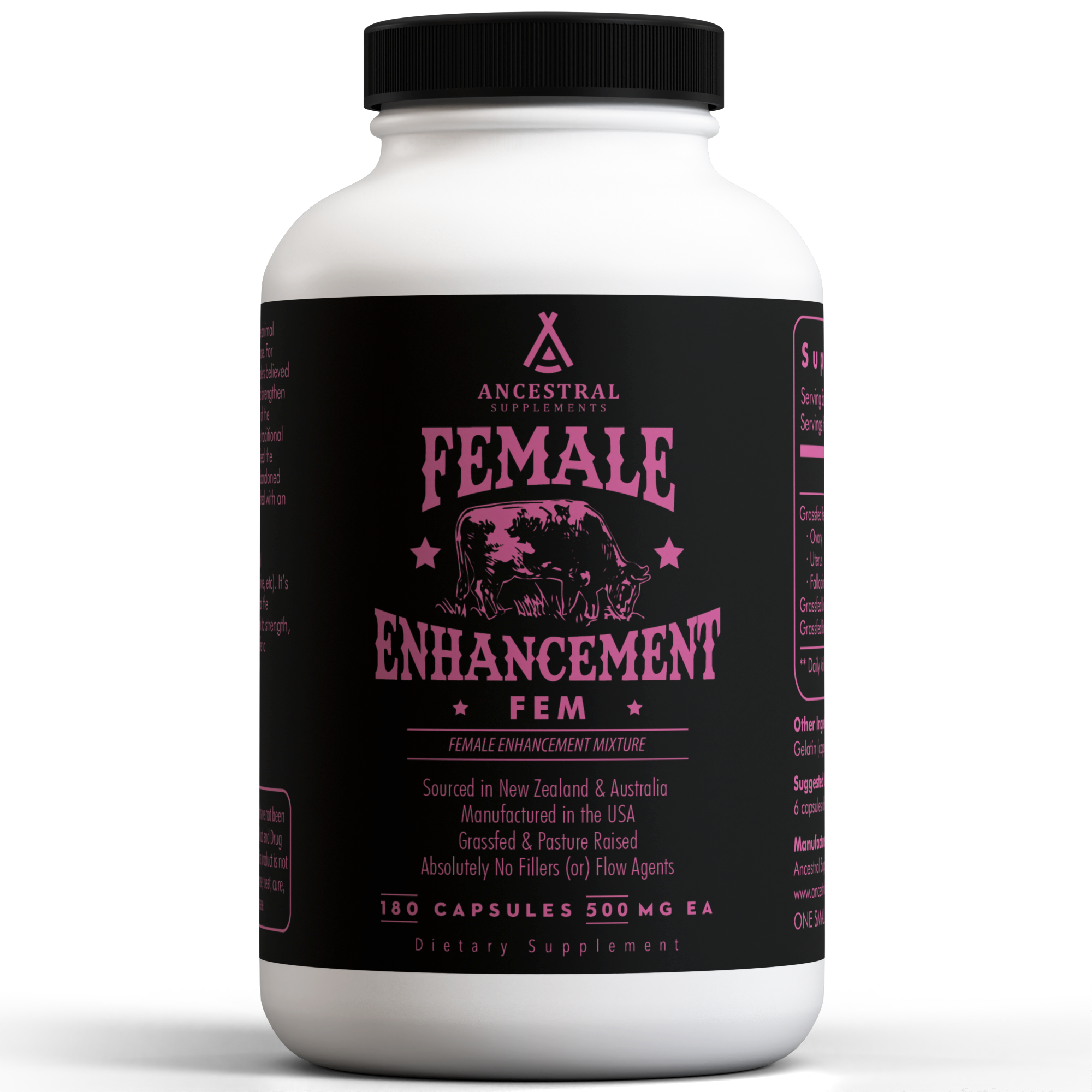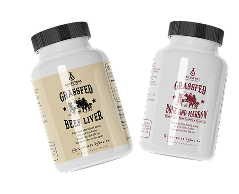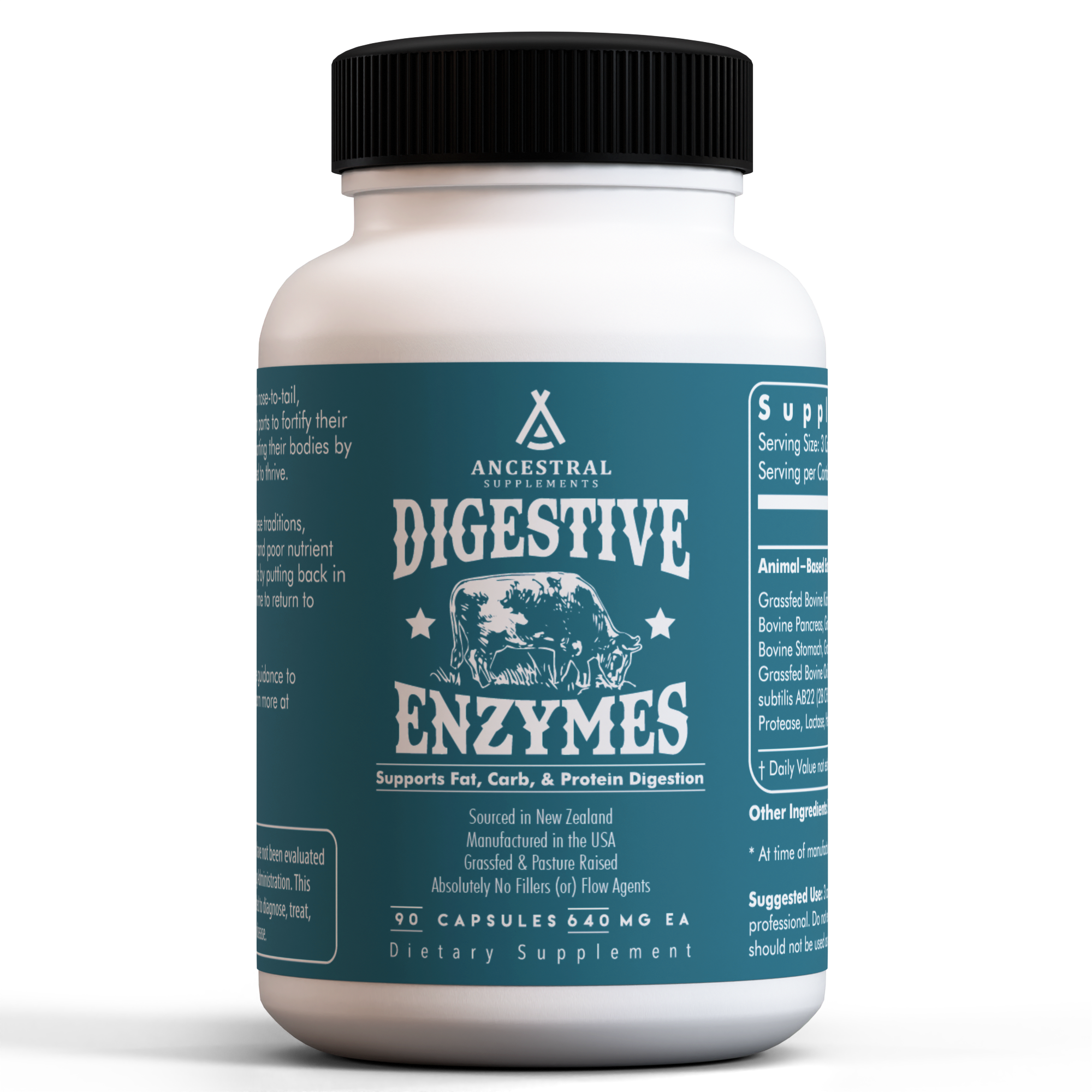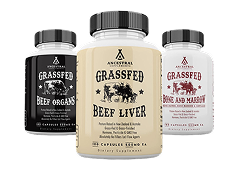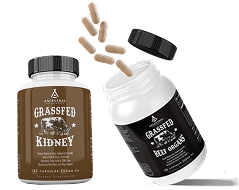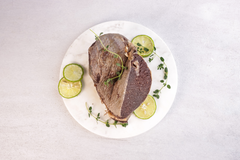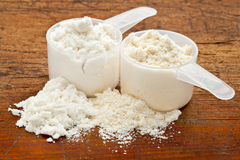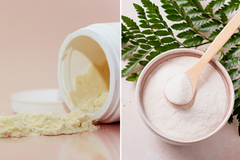What Is Collagen? The Different Types & How They Support Your Body

Have you ever wondered why your skin doesn't bounce back the way it used to, or why your joints feel stiffer than they did in your twenties? The answer likely lies in your body's declining production of collagen—a vital protein that literally holds your body together. While aging is inevitable, the rate at which we lose this crucial building block doesn't have to be.
Understanding collagen and how to support your body's natural production of it could be one of the most important steps you take toward maintaining your health, vitality, and youthful appearance as you age. From supporting your skin's elasticity to strengthening your joints and even improving your cardiovascular health, collagen plays a far more significant role in your overall wellness than you might realize.
In this comprehensive guide, we'll explore everything you need to know about collagen: what it is, the different types your body needs, the various sources you can consume, and the remarkable benefits that come with making collagen a priority in your daily routine.
What Is Collagen?
Collagen is the most abundant protein found within our bodies. It makes up 30% of the total protein in the body and 70% of the protein found in your skin. Essentially, it's the glue that holds us together.
As we grow older, we start to produce less and less of it. Research shows that by age 40 we produce about 25% less collagen. And by the age of 60, we are producing 50% less collagen daily (1).
The physical signs become noticeable through wrinkles, cellulite, saggy skin, joint pain, and thinning hair to name a few. While some people think this is just a part of the aging process, the lifestyle factors that you choose every single day determine how your life will unfold. You can consciously choose to do certain things that will keep you younger longer. Consuming collagen and collagen-promoting foods is one of those powerful strategies.
Different Types of Collagen
There are many different kinds of collagen that all have unique benefits for our body. There are actually over 20 known types of collagen found within the human body. The main ones are types I, II, III, IV, V, and X. Types I, II, and III make up nearly 90% of the collagen within our bodies and can easily be consumed through certain foods.
Type I
The most abundant type of collagen found within the human body. It can be found in your tendons, ligaments, organs, muscles, and skin. Type I is also found in the gut, which helps to line the GI tract. Getting more of this type of collagen in your diet can help with joint repair, hair growth, and nail strength.
Type II
Mainly found in the joints so it helps to build cartilage. It's very beneficial for helping joint discomfort and preventing further joint damage. Consuming more type II collagen can help your joints stay more youthful longer.
Type III
Along with type I and II, type III is another main collagen that is very crucial for our bodies. Due to its structure, it makes up our organs and is what gives our skin its elasticity. It's also been found in large quantities within the heart and helps to line the blood vessels. For this reason, consuming more type III collagen has been shown to help with cardiovascular issues (2).
Type IV
This kind of collagen, although not as prominent as the first three, has a very important role of lining the muscles, organs, and fat within our bodies. It comprises the basal lamina of the endothelial cells which line the organs and are required for blood vessels and nerve functions.
Type V
Very important for females. This kind of collagen lines the placentas, helping to nourish the child, while removing wastes during the pregnancy process.
Type X
Involves the formation and protection of bones and the process of endochondral ossification, which is essentially the creation of bone tissue.
Different Sources of Collagen
Bovine Collagen
A fancy name for collagen found within the cartilage and bones of cattle. Consuming a beef bone broth is a great way to get in massive amounts of bovine collagen! You'll get types I and III consuming this kind of collagen, along with amino acids proline and glycine, which help the body to run more smoothly. These amino acids help to keep your blood vessels and joints strong, while improving your overall cardiovascular health.
Fish Collagen
Very absorbable, fish collagen is rich in amino acids proline, glycine, and hydroxyproline, as well as a good source of type I collagen.
Chicken Collagen
Mostly rich in type II collagen, this is a great resource to use for joint health, as it's an excellent cartilage builder. Naturally rich in chondroitin and glucosamine sulfates, together these are powerful anti-inflammatories that help joint pain, improve immune function, and overall wellness.
Egg Shell Collagen
Oddly enough, egg shells (and whites) contain type I, II, III, IV, and X types of collagen. It contains glucosamine sulfate, chondroitin sulfate, hyaluronic acid, and other amino acids that help to build muscle, increase wound healing, and reduce inflammation throughout the body.
6 Benefits of Collagen
1. Great for Hair, Skin, and Nails
Do you have thinner hair, looser skin, and more wrinkles than you did even just a few years ago? Knowing that collagen production goes down as we age, you can counteract this by adding more collagen into your diet.
According to a randomized controlled trial published in the journal Nutrients, women who received a collagen supplement for 12 weeks, compared to women who received a placebo, saw "significantly improved skin hydration, elasticity, roughness, and density" (3).
2. Helps Improve Joint Function
Also as we age, our tendons, ligaments, and joints tend to lose their collagen as well, leading to stiffness, swollen joints, and pain. Type II collagen especially will actually help to build back up our cartilage and protect our joints, helping us to move more freely without pain and with more flexibility.
Individuals who suffer from the autoimmune condition rheumatoid arthritis can see great improvements with collagen supplementation. In a randomized double blind, placebo controlled trial, 284 patients were divided into two groups. Half were given a placebo and half were given a low dose collagen supplement for 24 weeks. At the end of the trial, researchers concluded that "positive effects were observed with CII (collagen type II) at the lowest dosage tested, and the presence of serum antibodies to CII at baseline may predict response to therapy...no side effects were associated..." (4).
In short, including more dietary collagen in your life may help to improve your joint function while not containing side effects many prescription drugs contain.
3. Helps Boost Cardiovascular Health
Consuming collagen also means you'll be consuming the amino acid proline. Proline has been shown to help the arterial wall with plaque buildup, as well as tissue repair and joint pain (5). It's also been shown to prevent arteriosclerosis due to its removal of fat from our arteries.
Eating a diet low in sugars and refined carbs, while eating more healthy fats and high quality water can help with overall cardiovascular health as well.
4. Aids in Detoxification
Glycine, the simplest structured amino acid that is naturally found in collagen, helps the liver to buffer out toxins we accumulate day to day. One of the most effective ways to reap the benefits of this detox is to do a one to two day bone broth fast. By consuming just bone broth and structured water for two days, you give your body a complete flush and a solid liver detox to help you feel rejuvenated and fresh.
The liver uses glycine molecules to bind to toxins, which help excrete them out of the body (6). Glycine is considered "non-essential," which means that our body produces it on its own, so we don't need it through our diet. However, our liver can only make a certain amount. And due to our highly toxic world we live in nowadays, it's crucial to help detox our bodies as much as we can, so adding more glycine through our diet can help to detox ourselves naturally.
5. Supports the Lining of the Gut
Things like sugar, gluten, alcohol, toxins, and conventional dairy can wreak havoc on the lining of the gut.
Collagen has this very unique ability to support the lining of your gut, helping to minimize gut-related discomforts like occasional bloating, gas, and more.
6. Can Improve the Appearance of Skin
You can think of collagen as a natural botox that helps the entire body, not just a targeted area. Collagen has this ability to form a protein called elastin, which makes up the dermis of your skin (8). And since we lose our elastin and connective tissue as we age, by consuming more collagen on a daily basis we can help keep our skin looking younger and healthier.
Conclusion
Collagen isn't just another health trend—it's a fundamental component of your body's structure and function that deserves serious attention, especially as you age. With collagen production naturally declining by 25% at age 40 and 50% by age 60, the visible and invisible effects on your skin, joints, cardiovascular system, and overall health become increasingly apparent.
The good news is that you have the power to take action. Whether through high-quality collagen supplements, bone broth, or collagen-rich foods, incorporating this vital protein into your daily routine can help counteract the natural aging process. From improved skin elasticity and stronger joints to better gut health and enhanced detoxification, the benefits of collagen supplementation are both wide-ranging and well-documented.
Remember, the lifestyle choices you make today directly impact how you'll look and feel tomorrow. By prioritizing collagen consumption alongside other healthy habits, you're investing in your long-term health, vitality, and quality of life. Your future self will thank you for starting today.
Why not begin this week? Try adding a high-quality collagen supplement to your morning routine and experience the difference for yourself. Your skin, joints, and overall health are worth the investment.

